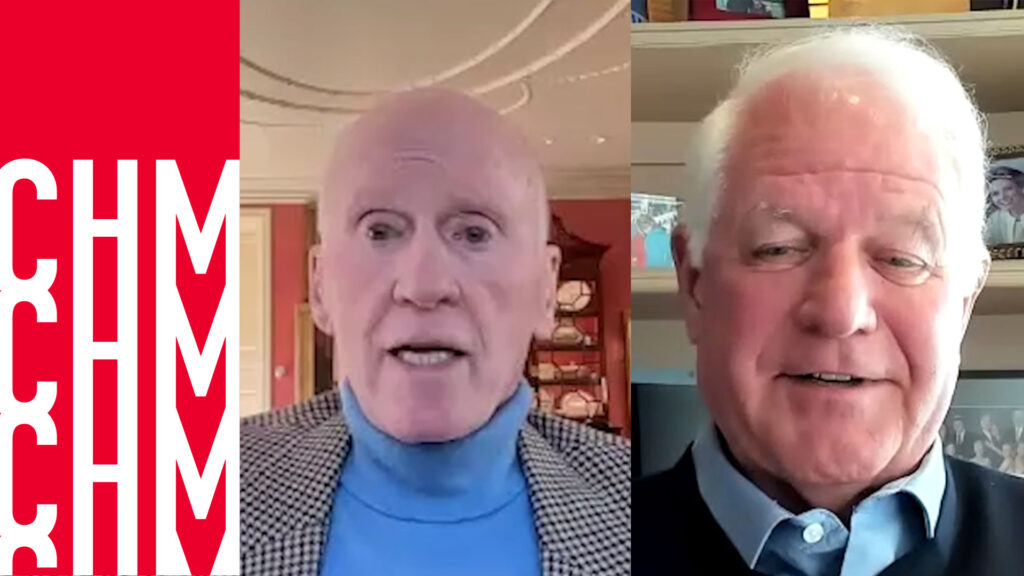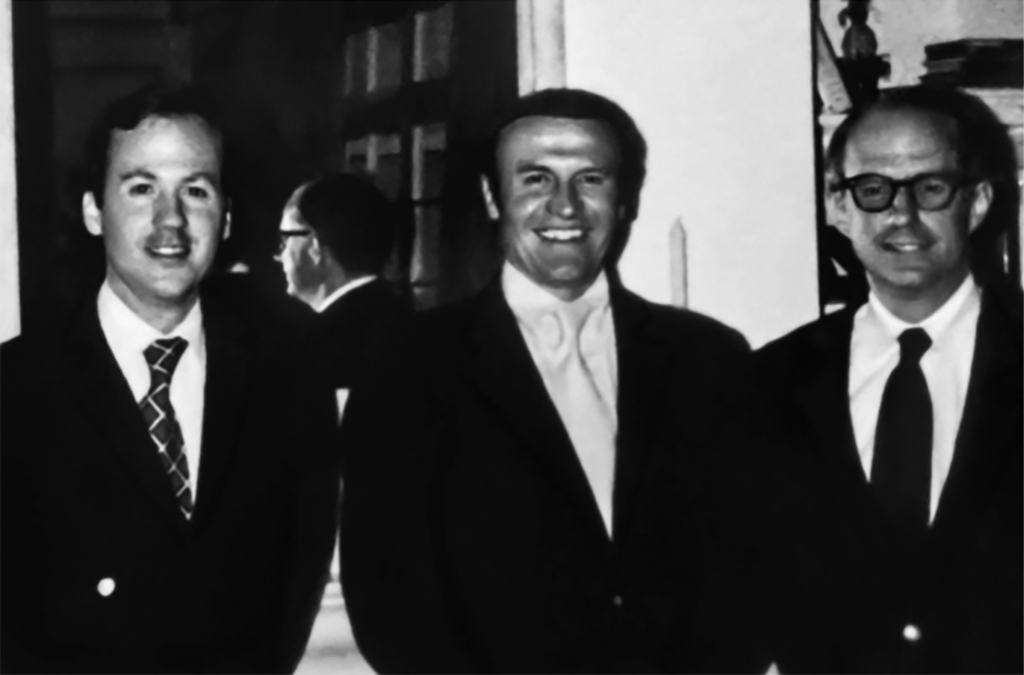
Who better to share insights about the ever-evolving world of venture capital than an insider . . . or two? On April 5, 2023, CHM hosted a virtual fireside chat with Charles “Chuck” W. Newhall III, cofounder of leading venture capital firm NEA, in conversation with Accel cofounder Jim Swartz.

Chuck Newhall (left) and Jim Swartz (right).
Founded in the late 1970s, NEA was going up against well-established firms on both coasts in its early days, including Accel. But it had a strong team of cofounders with diverse strengths. Chuck came from a family of investors, Frank Bonsal was an investment banker who knew everyone, and Dick Kramlich was a well-respected tech VC on the West Coast. Chuck viewed venture investing as a calling, and in the mold of JP Morgan in the 1890s, he wanted to set up a partnership that would last 100 years.

NEA cofounders (from left), Chuck Newhall, Dick Kramlich, and Frank Bonsal.
People laughed at that idea, but to Newhall, taking the long view of history is common sense. By studying history, he says, you can avoid mistakes and make better decisions. He’s played a key role in urging venture capitalists to give their materials to CHM to preserve the history of the industry and make it available to all.
Chuck and Jim have been in “co-opetition” for 40 years or so, but they feel that the environment of friendly cooperation and competition they thrived in may be in danger these days.
Chuck Newhall and Jim Swartz discuss what makes the industry work.
Chuck and Jim have weathered five boom and bust cycles in the last forty years. Chuck sees bubbles as signs of fundamental change. From the tulip craze of the 1630s to today’s AI, bubbles signal a shift with critical ramifications. He advises investors to ride the wave early on but to continue to build strong companies that will last when the bubble inevitably collapses.
But venture investors must also have the courage of their convictions. Chuck describes scenarios in which this plays out in his new book Dare to Disturb the Universe. It might take the form of not taking “no” for an answer from a promising founder. Or, in the case of NEA cofounder Dick Kramlich, it might mean investing your own money when your partners want to pull out.
So what has made NEA so successful for so long? Chuck insists that there’s no one way to build a firm. But he believes NEA’s culture has been a key to its success.
Chuck Newhall explains NEA’s success.
Chuck and Jim also believe that one of the core attributes of a long-term venture investor is patience. Don’t cut corners, ethical or otherwise, and build a company step-by-step.
Chuck cautions that venture capital is not the industry to expect to get rich quick. He also urges venture firms to diversify so that when bubbles burst, other investments can save the day. For NEA, the two main industries they invest in—tech and healthcare—are countercyclical. While both Chuck and Jim prefer to bet on the entrepreneur rather than the idea, they are concerned about a troubling tendency among some founders and their boards.
Chuck Newhall and Jim Swartz explore the problem of entrenched founders.
Chuck advises those who want to enter the venture capital industry to be as careful about who they get involved with as who they marry. Your investors, employees, and partners should share your values or their will inevitably be problems, he says. Jim recommends becoming an expert in your particular field of interest.
Chuck and Jim urge aspiring venture investors to seek out smart people and listen and learn from them. The same applies to new entrepreneurs. In Chuck’s colorful phrase, “When you start a company make sure you don’t have cement ears.”
VC Stories | CHM Fireside Chat, April 5, 2023
Blogs like these would not be possible without the generous support of people like you who care deeply about decoding technology. Please consider making a donation.